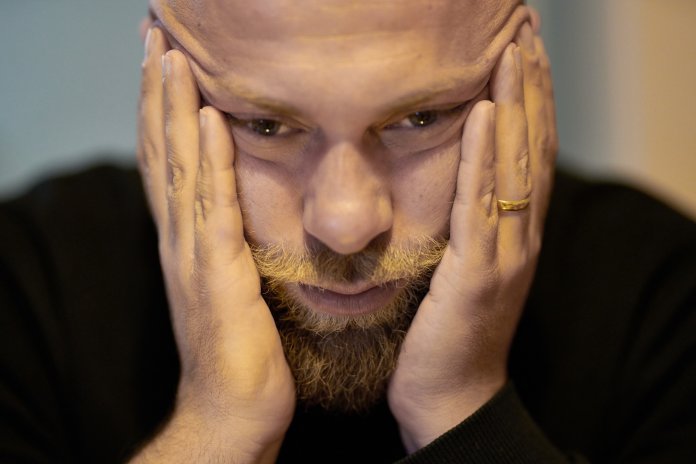The crypto-obsession is back
In early January, Bitcoin experienced a new peak value. Reaching a price of almost USD $42,000. According to CoinDesk, the price of the famously volatile cryptocurrency was around USD $32,500 on Friday morning. Within this new stage in the history of cryptocurrencies, many are wondering about it. What are the psychological reasons involved in this Bitcoin Fever?
Even the most important financial firms are starting to take BTC seriously. JP Morgan says this in a note published in January. If market capitalization is high enough to compete with gold, the price of Bitcoin could reach $146,000. Today, Bitcoin has a market capitalization of more than $600 billion.
More than just a cryptocurrency, Bitcoin has become an obsession for many people. Here are some of the psychological and behavioral reasons why BTC can become an obsession:
Bitcoin represents hope
“Money is a technology that allows us to imagine futures,” says Lana Swartz. She is an assistant professor of media studies at the University of Virginia. She is also the author of “New Money: How Payment Became Social Media“.
Enthusiasm around Bitcoin, especially among young people, shows that people feel “excluded from the ability to have the kind of assets that would allow them to generate some form of wealth”. This was said by Finn Breton, professor of science and technology at the University of California Davis. He is the author of “Digital Cash: The Unknown History of the Anarchists, Utopians, and Technologists Who Created Cryptocurrency“.
According to U.S. Federal Reserve statistics, ‘Millennials‘ had only 4.6% of the total assets in the US during the first half of 2020. They were born between 1981 and 1996.
“When we look at this Bitcoin Fever, we really need to see it in part as a demonstration of the fact that it is happening because there are no reliable and non-speculative mechanisms by which people who do not yet have access to some wealth could produce more wealth over time,” he says. “And that’s a real indictment of the way things are currently set up for the youth.”
Bitcoin Fever: Bitcoin becomes part of people’s personality
There are other reasons why many people are experiencing a strong ‘crypto-obsession’. Like, for example, the fact that they don’t just see it as an investment. On top of that, Bitcoin becomes an important part of the personality of many of its followers.
In December, billionaire Mark Cuban told Forbes that Bitcoin is “more of a cult than a solution to a problem”. In particular, Bitcoin enthusiasts have their own vocabulary. Full of acronyms and phrases, such as “HODL” or “whale“. Bitcoin conferences used to attract thousands of participants (at least before COVID-19). With their bitcoins, cryptocurrency followers even seem to have a favorite car to buy: Lamborghini.
“The culture around Bitcoin is part of the appeal. When you buy Bitcoin, you’re actually buying a whole scene. It is a scene that can be part of your identity,” Breton says.
Some serious investors and conventional financial firms are paying more attention to Bitcoin. But it is still a very controversial idea. People who invest in it can see themselves as progressive or countercultural, Breton says.
Lack of stability can be exciting
Many expert investors have compared the purchase of Bitcoin to betting in Las Vegas. Like Kevin O’Leary of Shark Tank, or Jim Cramer of CNBC. Berkshire Hathaway CEO and President, Warren Buffett, has long opposed Bitcoin. He said that “cryptocurrencies are basically useless” and “just a betting mechanism”. As with gambling, “some people certainly enjoy that excitement,” says Utpal Dholakia, a marketing professor at Rice University. This equates Bitcoin psychology with gambling addiction.
Tom Meyvis, marketing professor at the Leonard N. Stern School of Management of New York University says daily stock price assessments are an exercise that could become boring. “With something like bitcoin, it’s exciting because something is constantly happening,” he says. “You can check it 10 times a day and the price can vary greatly each time.”
In addition, many people have more affinity than ever for high-risk, fast-paced investments. Especially young people who have grown up wanting immediate gratification and quick results thanks to video games. Shwartz also says it makes intuitive sense to be attracted to lucrative high-risk assets like Bitcoin.
Social media supports the crypto-obsession
Social media influences and encourages bitcoin fever. Mainly thanks to celebrities investing in bitcoin and a deeply active Bitcoin culture on Twitter, TikTok and Reddit.
“Suddenly, there’s a different way to think, finance, and establish an identity as an individual in finance”. Swartz tells to CNBC. According to Dholakia, who studies financial decision-making, these social networks can also influence habits. The data has revealed that people prefer to take more risks with the types of investments they make when they talk about their investments in online social contexts. More than with financial firms. He tells to CNBC.
“The same dynamic applies to many investment decisions that are being made right now,” Dholakia says.
Fear of Missing Out (FoMO)
Another important part of the psychology of crypto-obsession is the fear of missing the opportunity, colloquially known as FoMO. When people think that some technology could radically change their lives, they are eager to share it. This means that, because conventional financial institutions like PayPal and Square have invested in BTC and some analysts have predicted that the cryptocurrency’s rates could reach $200,000 in the next decade, it’s hard for people to avoid the fear of missing the opportunity.
Moreover, there are viral stories of people who have succeeded in Bitcoin. From people who become immediate millionaires to stories, like ‘The Bitcoin family’. This is a Dutch family that went on a trip around the world after having liquidated all their assets and savings to buy Bitcoin in 2017. Then, Bitcoin was valued at $900 USD by many financial firms.
Meyvis also mentions that “the advantages have more visibility than the disadvantages”. This means that the possibilities offered by a new technology like bitcoin are often too attractive for people to pass.
Conclusion
People around the world consider cryptocurrencies in general, and bitcoin specifically, to be an integral part of their lives and personalities. This includes many financial firms. There are several reasons for this phenomenon that we are calling Bitcoin Fever; and although BTC deals with money, which we normally associate with logical thinking and direct responses, most of the reasons for this obsession are not entirely rational.
While it is impossible for most of us to act completely rationally all the time, having these effects in mind could help us think more clearly. Bitcoin is definitely a real opportunity with great advantages. You shouldn’t allow external factors to influence your decisions and lead you to overestimate market possibilities.







